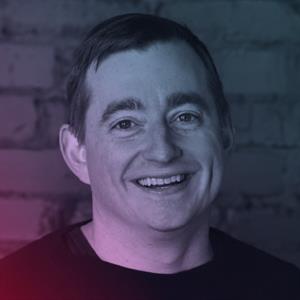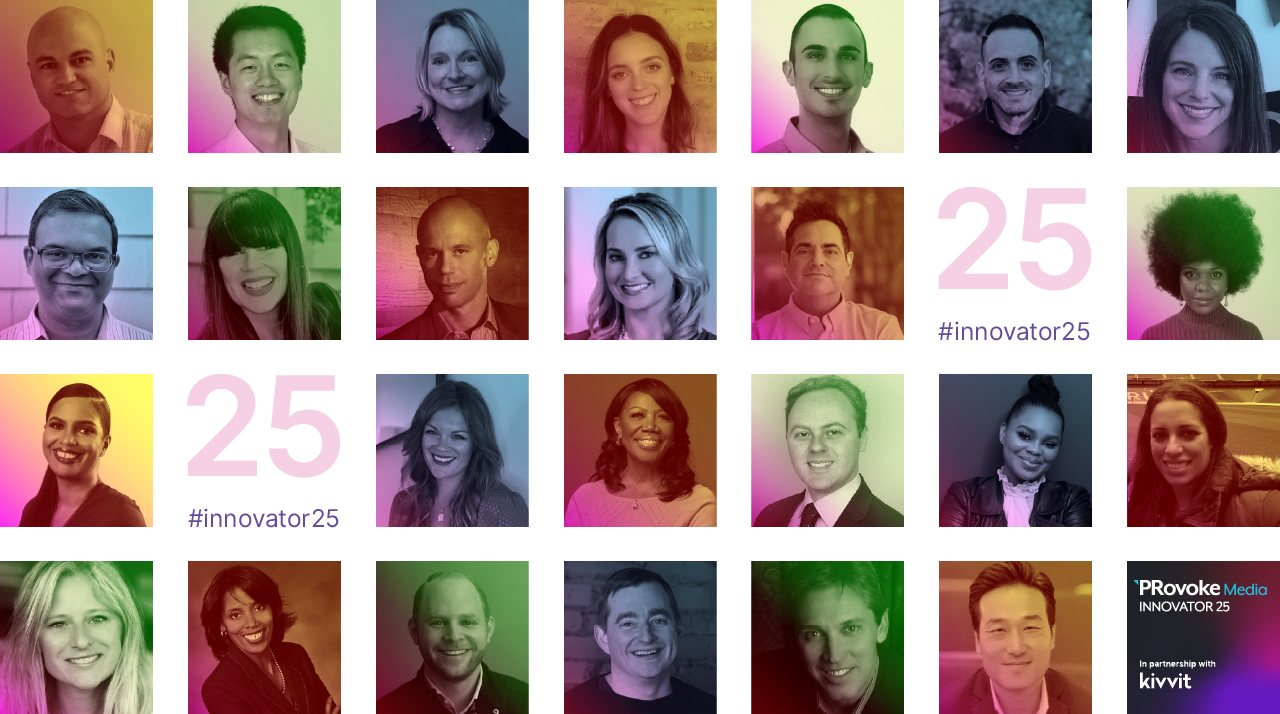
Ben Coffey Clark
Founding Partner
Bully Pulpit Interactive
San Francisco, CA
Hometown: Middletown, CT
“Communications people need to quantify their outcomes like marketing people, and marketing people need to move as fast as the speed of news."
Benjamin Clark’s guiding philosophy is: viral ads don’t necessarily persuade swing voters and flashy social good campaigns don’t necessarily improve the reputation of corporations. To this end, he helped develop BPI's measurement tools, including its proprietary survey platform Vantage. By measuring ads, earned content, and owned content by both reach and persuasion, he helped win back the House of Representatives for Democrats and improve the reputations for Fortune 100 companies, including Walmart, among other notable achievements.
What professional accomplishment are you most proud of?
BPI launching Vantage, our proprietary platform that tracks how marketing campaigns actually changed opinion, allowed us to tie our campaigns directly to sales lift. This means we move away from engagement metrics — because the real question isn’t if someone liked something, it’s if it changed their mind about the brand in question and did they shop more. Pulling communications and marketing out of the dog and pony show into measurable outcomes is an achievement I’m proud of.
Political campaigns have an end date and an obvious outcome — we measure every investment against the question, “will this help us win?” I’ve advised major companies so that they can find a similar “so what?” question to measure their reputation against their business goals. In 2021, the way companies invest in their employees and empower their customers or how they take action to address pressing societal needs can earn greater basket activity with a persuadable shopper. It can also preserve a license to operate in a world with greater legislative and regulatory scrutiny. Building a program that can measure these outcomes isn’t easy, but worth it over the long term.
I’ve helped companies win business by thinking like a political campaign, and I’ve helped presidential campaigns win elections with technology we’ve built working with clients across the private sector. This best of both worlds approach has helped BPI attract top talent and flagship clients.
We're at a pivotal moment on the future of the office and how we work. How would like to see 'office/work culture' evolve?
We should absolutely double down on the few good elements of Zoom life. One of those good Zoom elements, is that it’s more of a meritocracy of ideas because people don’t get caught up in whose office they’re in or what their title is. Recently, a client and I built our respective teams from scratch in tandem as we launched a massive advertising campaign. Our different teams do not see a vendor-client division. After spending a year together on Zoom, welcoming new faces and focusing on who can get a project deliverable done quickly, the company or agency identity falls aside a bit and that’s a path of shared accountability and teamwork we should all pursue.
How can the PR industry make real progress in diversity, inclusion and equity?
As an industry, before telling everyone that there are solutions, we need to be introspective and ask ourselves what we as individuals can do to make real progress. For me, that means really listening to people from different communities, both at BPI and externally, as well as diversity, inclusion, and equity experts — and then implementing what I learn into action in both my personal and my professional life.
At an organizational level, it’s not enough to recruit diverse candidates, you need to create an environment that is the best workplace for all talent. We have to be continually empowering and sustaining a diverse team, and we’ll be a much stronger industry for it.
What makes you most excited or proud to be part of the PR industry?
There used to be such a division at companies between a CCO’s portfolio and a CMO’s. As someone who has always resided somewhere between the two — I started my career as a political reporter, then went on to be a communications director, and now I run ad spends for presidential campaigns and Fortune 10 brands — I recognize that the exciting, innovative work happens when communications and marketing seamlessly come together. We’re in a time where communications people need to quantify their outcomes like marketing people, and marketing people need to move as fast as the speed of news and social media, no more two to three month ramp up cycles.
What are your fears/concerns for our industry?
The rise of analytics in our industry has caused two bad habits. The first is that we focus too much on the data that is readily available, e.g., engagement, rather than doing the harder but much more valuable work of measuring persuasion. We’ve become preoccupied with volume over impact — caring more about how many people saw something or engaged with it instead of measuring the overall influence the campaign had on the audience. Think snack companies doing rainbow colors during pride month, but not having any action to actually advance equality issues for the LGBTQ+ community. Then, second is asking what people think in a focus group and simply doing ads that mirror their feelings. While we want to use focus group data to help build a messaging foundation, we still need to push ourselves to inject new information with advertising and building based off what is hopeful, imaginative, and innovative.
What inspires you? This could be a person, place, activity, etc.
The amazing team we have at BPI. The fact that we’ve gone through this pandemic together, and we actually grew as a company in the face of the most challenging year we’ve collectively experienced — that is keeping me hopeful. The way that our team stepped up in the last year to do much more than their own jobs to help each other is truly incredible. We have parents on staff who needed time off to figure out childcare and schooling; we had people who took time to protect their mental health; and others needed to step back and adjust after being thrust into a completely different world. Our leadership allowed people to take that time off, outside of our existing PTO structure, but that wouldn’t have been possible without the support of the rest of our team members who really went above and beyond.
What are you thinking about most these days?
When we launched BPI, we were a bunch of young people trying to figure it out, very much in start-up mode. We were free of hierarchy and had created a space where it didn’t matter what your title was, the best idea always won. We’ve held on to that entrepreneurial spirit as an agency and that has been reflected in our culture even as we’ve expanded. A large part of our success during this pandemic is rooted in that culture. The pandemic required us to be in different places, develop new expertise, integrate even more, and escape from silos — while still producing great work and letting the best ideas win, always.
What is your idea of happiness?
A day off at home, a swim in the San Francisco Bay followed by a meal with my wife at our favorite restaurant, and then reading books with my one-year-old daughter to cap off the day.


 Podcasts
Podcasts Videos
Videos Profiles & Interviews
Profiles & Interviews Crisis Review
Crisis Review Coronavirus
Coronavirus Trend Forecasts
Trend Forecasts Social & Digital
Social & Digital Technology
Technology Consumer
Consumer Employee Engagement
Employee Engagement Sports Marketing
Sports Marketing  Global PR Agency Rankings
Global PR Agency Rankings Agencies of the Year
Agencies of the Year Innovator 25
Innovator 25 Creativity in PR
Creativity in PR Asia-Pacific Communication Index
Asia-Pacific Communication Index SABRE Awards
SABRE Awards PRovokeSummit Global
PRovokeSummit Global PRovoke Media Regional Series
PRovoke Media Regional Series Agencies of the Year
Agencies of the Year Roundtables
Roundtables Agency Playbook
Agency Playbook.jpg) All Jobs
All Jobs






